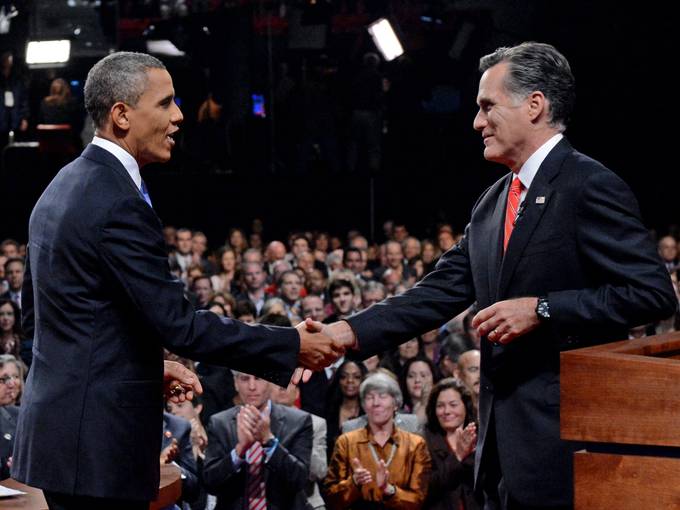Heck no!
I believe language is important because it reinforces our values. Teaching children to say please, thank you, or sir reinforces the value of humility, thankfulness and respect (respectively). They are just words, but words have meaning.
So what value does a list of taboo words provide? Let's consider it together.
My 9 year old informed me the other day that there was a bad word scribbled inside a rock tunnel at the park we were heading to. “I think it started with an s, maybe s-c something.” My 6 year old piped in helpfully, “Was it stupid? ‘Cause stupid is a bad word.” After a long pause the 9 year old said, “I think it was scat. You know, like, Go on scat! Get outta here!”
I never did find out what word was written with such secretive and malicious intent, but while my kids played I did wonder, what makes a word bad?
Some have suggested that when the Apostle Paul wrote to the Church in Philippi,
“For his [Christ’s] sake I have suffered the loss of all things and count them as rubbish, in order that I may gain Christ” (Phil. 3:8b ESV)rubbish could be adequately translated with the same word I suspect was scrawled at the park.** If it is okay for Saint Paul to use the word, why can’t we? What makes rubbish an acceptable word to put in the Bible?
I am not concerned with the historical/social events that lead particular words being labeled bad/naughty words or with the FCC rules about words not allowed to be broadcast on public airwaves.
My question is more basic. Can a word be bad at all? If so, on what basis? To answer the questions, let's first rule out some obviously false answers.
Clearly words are not bad because of their sound combinations. There is nothing inherently wicked about an appeal for quiet (Shhhh) followed by a pronoun (it). And no two languages have the same list of bad sounds.
Words are not bad because of their written symbol combinations. If the waves had washed sticks and seaweed onto the beach in the following shapes F U C K, I would not think that the ocean had done something naughty.
Words are not bad because of their material makeup. If I saw a teenager wearing a shirt with the same shapes as the waves washed up on the shore, I would take offense.*** What makes the two different? Why would I find it offensive on a polo or a billboard, but not on the beach? It has nothing to do with the material composing the symbols, but everything to do with the intent behind the symbols.
Words are not bad because of their referents. Consider these examples as alternatives to common taboo words:
- fornicate, coitus, sleep with
- excrement, poop, number two
- donkey, rectum, rear end
- sin, bad, devil (there is no bad word counterpart here, just words that refer to bad things)
Bad words are disrespectful. They express ideas in ways that intentionally disrespect the things or ideas they represent. Look again at the list in the previous point. What makes these words distinct from their bad word counterparts? The acceptable words are counted as more precise or as euphemisms. They are either more scientific, or extra polite. They either treat the ideas with respect by treating them as a fact or by treating them with the most palatable imagery possible. The acceptable words are not intended to degrade.
When I am out in public with my kids and a group (usually of men) linger nearby talking in profanity laced slang, I find I am most offended by their lack of respect. Don’t they realize there are kids present and that kids should be shielded from certain realities?
For the same reason bad language is considered unprofessional and generally taboo at work. It conveys lack of respect.
Having a list of taboo words reminds us that it's not appropriate to talk in certain ways about certain things. For example, it is not okay for child to speak to an adult in the same way an adult would speak to an adult. He has not earned that right and does not have the maturity or wisdom to do so. Those in public office avoid cussing (at least in public) out of respect for the dignity of the office they represent.****
Proverbs 10:20 summarizes well:
The tongue of the righteous is pure silver; the heart of the wicked is of little value. (HCSB)Notice the righteous person has pure speech, but the wicked person has wrong motives. What is implied is that the righteous person also has a pure heart—he says the right thing for the right reasons—and that the wicked person’s worthless heart also results in worthless speech. Bad words, over time, have become associated with a bad attitude, or a bad motive (this is where society and history come in).
As Paul also writes,
Let no corrupting talk come out of your mouths, but only such as is good for building up, as fits the occasion, that it may give grace to those who hear… Let there be no filthiness nor foolish talk nor crude joking, which are out of place, but instead let there be thanksgiving. (Eph. 4:29, 5:4 ESV)Good speech is about much more than avoiding certain words. It's about treating with respect those things that should be respected, speaking honestly about even unseemly realities. It's about using words appropriate to the subject and the audience. It's about avoiding foolishness and being thankful for the good things and treating them with due dignity. It's about recognizing that some things are holy. Some things are to be set apart from the mundane, the base, the common, the vulgar.
On the other hand, sometimes the most appropriate and effective word is a "bad" one. By not using them casually, you reserve them to use to great effect when necessary. If the taboo words are used indiscriminately in every day dialog with little to no meaning, there are no words left to pull out when you’re really mad, disgusted, or need your co-worker’s attention NOW! Paul new this well, and we find he used rubbish only the one time in the New Testament.
Maybe we shouldn't call them bad words anymore, but corrupting and foolish talk. Then we might remember to carefully choose our words. Then we might remember to choose words that reinforce good values, that teach respect, that encourage self-control, that make room for thanksgiving.
* Don't mistake my use of cuss words in this blog as an endorsement of them. I believe grownups can have a mature conversation about words while actually using the words we wish to maturely talk about.
***Even if it was a clever clothing brand acronym for the French Connection United Kingdom (FCUK).
****Admittedly, it is hard to come up with many venerated institutions anymore that adults universally hold in high regard (e.g. the presidency, the priesthood, heaven, etc.). Somethings should be discussed or addressed using only the most respectful terms.


